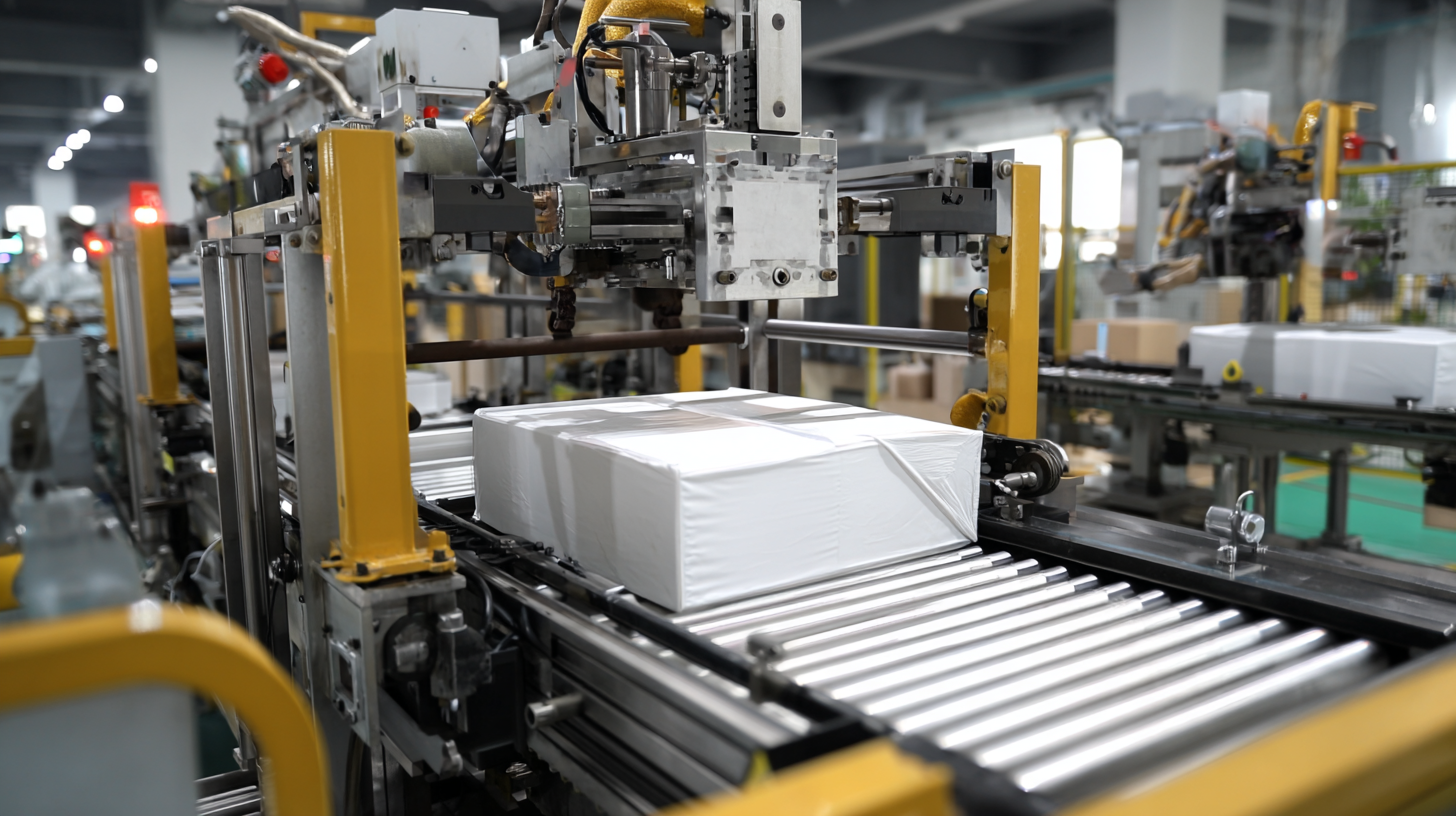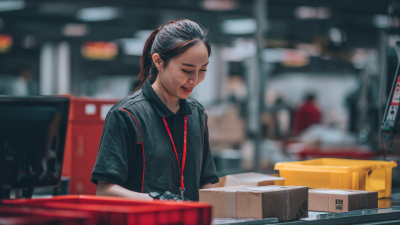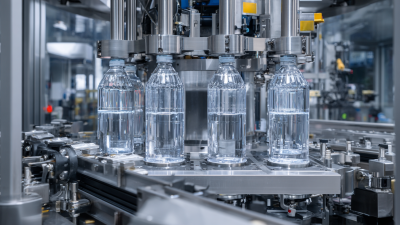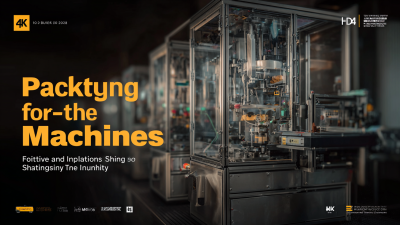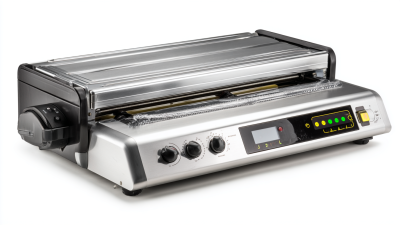Leave Your Message
In today's fast-paced manufacturing environment, the selection of the right packing machine is crucial for optimizing productivity and ensuring product quality. Recent industry reports indicate that the global packing machine market is projected to reach approximately $50 billion by 2025, reflecting a significant compound annual growth rate (CAGR) of around 5.4% from 2020. This growth is largely driven by the increasing demand for automated packaging solutions and the rising emphasis on sustainable packing practices.
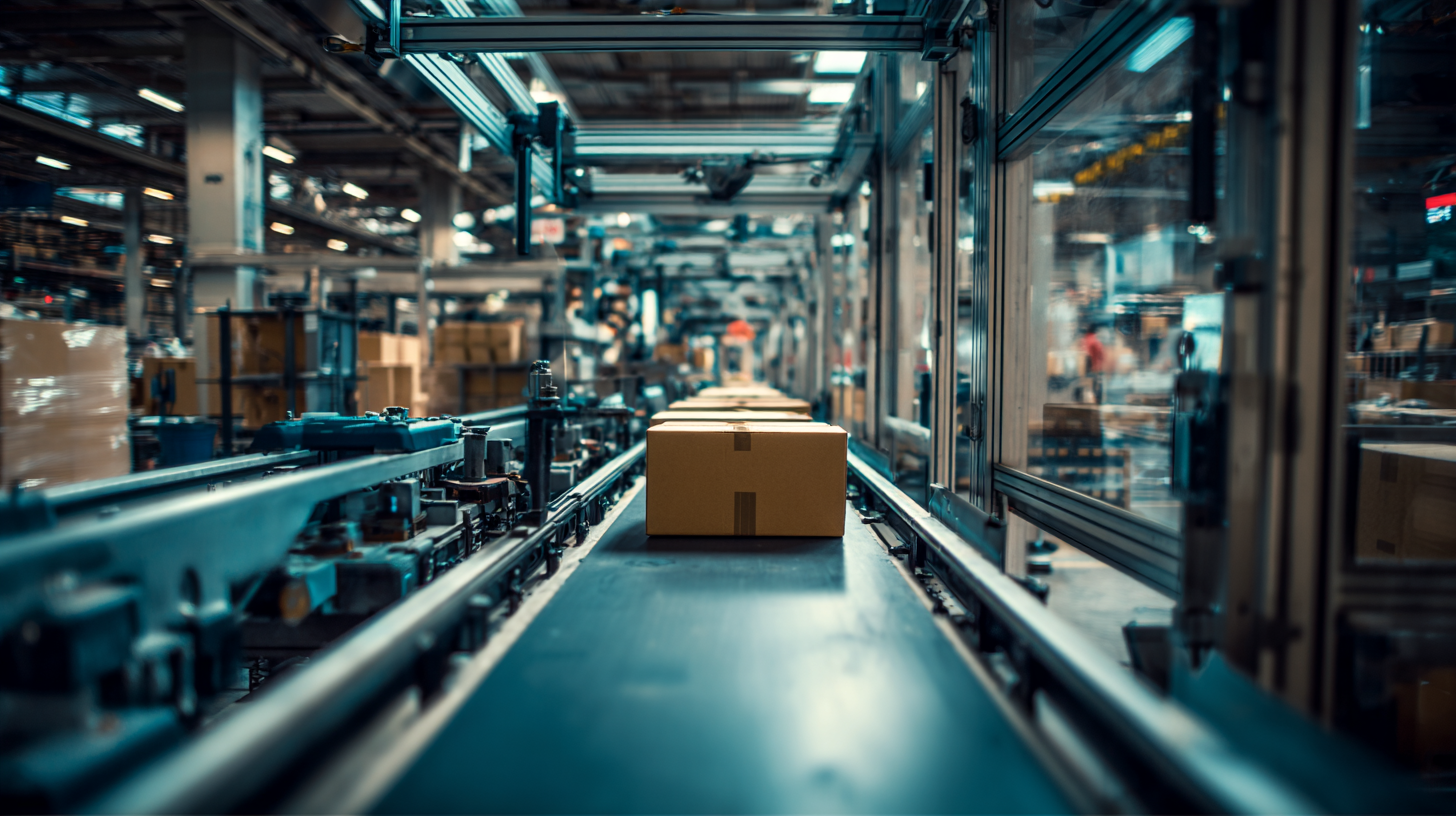
As businesses strive to enhance efficiency and reduce operational costs, understanding the diverse range of packing machines available is essential. Choosing the right packing machine not only helps streamline operations but also plays a vital role in adapting to market trends and customer expectations. Thus, making an informed decision is more important than ever for businesses looking to thrive in a competitive landscape.
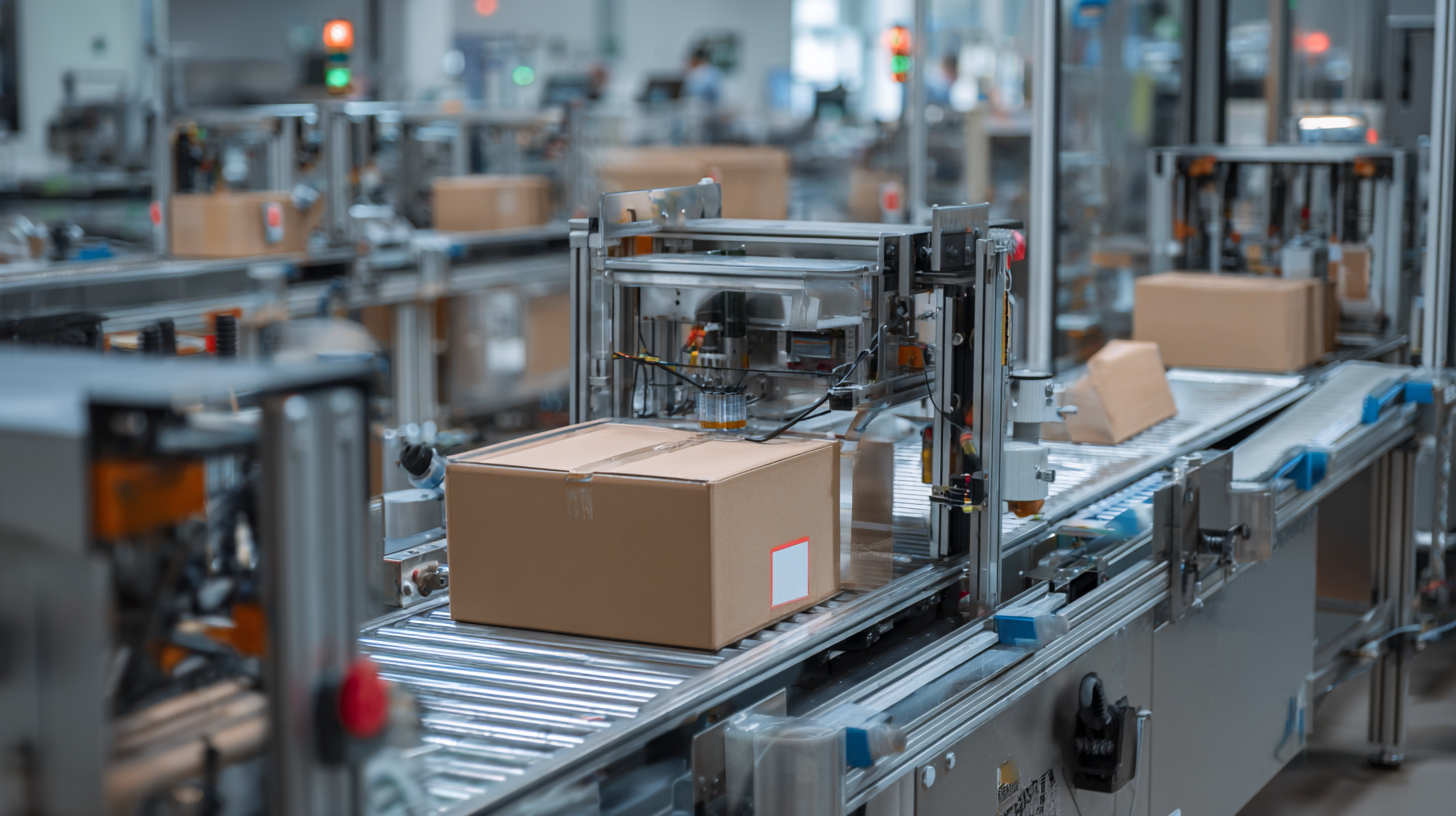 When selecting a packing machine for different products, several critical factors come into play. The first consideration should be the type of product you are packaging. For instance, liquid products may necessitate a filling machine that can handle viscosity and flow dynamics, while dry products often require a different solution, such as a vertical or horizontal form-fill-seal machine. Additionally, the size and shape of your products will influence the choice of packing machine, as custom molds or adjustability in the equipment may be required to accommodate various dimensions.
When selecting a packing machine for different products, several critical factors come into play. The first consideration should be the type of product you are packaging. For instance, liquid products may necessitate a filling machine that can handle viscosity and flow dynamics, while dry products often require a different solution, such as a vertical or horizontal form-fill-seal machine. Additionally, the size and shape of your products will influence the choice of packing machine, as custom molds or adjustability in the equipment may be required to accommodate various dimensions.
Another vital factor is production speed and volume. Consider how many units you need to pack per day, as machines can vary greatly in throughput capabilities. High-speed machines might be essential for larger operations, while smaller businesses could opt for semi-automatic options, balancing efficiency with cost. Furthermore, it’s important to evaluate the machine's scalability and flexibility. As your business grows or diversifies its product line, having a packing machine that can adapt to different packing formats or materials can save you significant time and investment in the long run.
When selecting a packing machine for your business, understanding the packaging standards and regulations specific to your industry is crucial. For instance, in the food packaging sector, adherence to regulations set by the Food and Drug Administration (FDA) is mandatory. According to the International Food Packaging Association (IFPA), nearly 80% of packaging compliance issues arise from a lack of understanding of these standards. Issues like labeling accuracy and safety guidelines must be monitored carefully to avoid significant fines, product recalls, and damage to brand reputation.
In other sectors, such as pharmaceuticals, compliance with the Good Manufacturing Practice (GMP) established by the World Health Organization (WHO) is required. A recent market analysis from the Pharmaceutical Packaging Association (PPA) revealed that businesses investing in compliant packaging solutions have reported a 30% increase in efficiency due to reduced regulatory hurdles. Therefore, before purchasing a packing machine, businesses should assess not only their production needs but also ensure that the machinery aligns with the regulatory standards that govern their industry. This preparation will help mitigate risks associated with compliance failures and enhance operational efficiency.
When selecting the right packing machine for your business, understanding your production volume and speed requirements is crucial. Assessing how much product you need to pack per hour allows you to narrow down your options. For instance, if your business operates on a high-volume scale, a machine with a faster packaging speed will be essential to meet demand. On the other hand, lower-volume operations may benefit from machines that prioritize versatility over sheer speed, allowing for adjustments in packaging types and sizes.
Additionally, consider the nature of your products when evaluating speed requirements. Perishable items may necessitate quicker processing to maintain freshness, while bulk items can afford a more leisurely pace. It’s also important to factor in changeover times between different products. A machine that minimizes downtime during transitions can help maintain overall efficiency. By aligning your packing speed and production volume with your operational goals, you can ensure that your machinery not only meets current demands but is also scalable for future growth.
When choosing a packing machine for your business, one of the most crucial factors to consider is the cost-effectiveness of your investment. The initial purchase price is often the first thing that catches your eye, but it's essential to look beyond this to ensure that you're making a wise long-term decision. A machine with a lower upfront cost might seem appealing, but if it requires frequent repairs or doesn’t meet your production demands, the expenses can add up quickly. Evaluating the efficiency and reliability of a machine is just as important as considering its price tag, as these elements directly impact your overall budget.
Long-term ROI (Return on Investment) plays a pivotal role in making the right choice. A higher-quality packing machine may have a more significant initial investment, but it often translates into higher productivity, reduced labor costs, and lower maintenance needs over time. Additionally, investing in technology that can automate processes and adapt to market changes can enhance your business's agility and responsiveness. Thus, it's critical to weigh both the upfront costs and the potential long-term benefits to determine which packing machine will provide the best value for your specific business needs.
When selecting a packing machine for your business, it’s essential to understand the various types available and their respective advantages and disadvantages. For instance, vertical form fill seal (VFFS) machines are often favored for their efficiency and adaptability, making them ideal for packaging powders and granules. According to a report by Smithers Pira, the VFFS market is projected to grow by 4.5% annually, driven by increased demand in the food and beverage industry. However, they may not be suitable for larger, bulk items.
On the other hand, horizontal form fill seal (HFFS) machines are optimal for packaging fragile items due to their gentle handling. They work well with products that require high speed and precision. Nevertheless, HFFS machines are usually more expensive and may require higher maintenance costs. It is crucial to weigh these factors based on your production needs and budget constraints.
Tip: Before making a decision, conduct a thorough needs assessment considering your product size, shape, and volume. Tip: Also, consult with machine manufacturers about customization options to ensure you select a machine that aligns with your operational efficiency goals.
